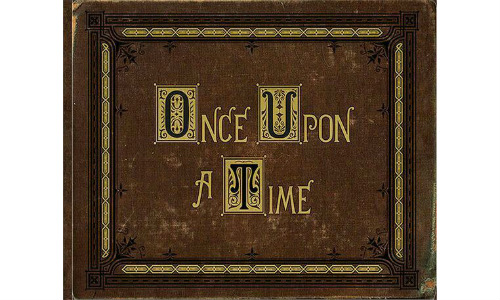“Diamond” Dallas Page, a famous pro wrestler from the ’90s turned yoga instructor, was on Joe Rogan’s podcast, talking about helping people with serious mobility issues to transform into being healthy and fit.
I don’t know much about his program, but he said something that hit me:
As important as the workout is, as important as the eating plan is, that’s 10% of the equation. The 90% is right between your ears. The story you tell yourself.
When I went for my Hall of Fame induction speech, in front of millions of people … The bottom line is, I wasn’t in the back going, ‘Oh I hope I don’t f— this up, what if I forget what I was going to say, oh god this sucks, what if I f— up…’
No, I’m saying: ‘This is the best thing I’ve ever done, I’m going to blow people away, I’m going to make them laugh, I’m going to make them cry, I’m going to inspire them.’
And that was my inner voice. I went out there and did the best thing I’ve ever done. It was the best thing I’ve ever done. But it’s about that story that you tell yourself.
That bit is from 35:40 that this video will start playing at (NSFW).
Listen if you want. Also, Joe Rogan responds with:
The way you think about things is so important. It’s so important. It’s almost more important than the facts.
This all brings up a good point for us:
What’s the vision story you tell yourself?
The story is evident in the questions I receive from readers. It often boils down to:
Is it possible for me to heal my eyes?
I’m glad so many people at least are asking questions about their vision and not accepting the disempowering solution of glasses or laser surgery.
Built into this question, though, is the story you have adopted, the story that says your eyes are damaged, broken or diseased. Unless you have an injury or have been diagnosed with an actual eye disease – the most common ones being cataract, diabetic retinopathy, or glaucoma – this story that you tell about your eyes that is inherent in the question of “How do I heal my eyes?” is simply not the case. Myopia, astigmatism, and hyperopia are not diseases and as such there’s nothing to heal, at least not in physical terms.
When you are motivated, it is easy for me to encourage you to believe you can reverse your vision problems and see clearly. People lose weight. People overcome illness and disease. People kick addictions. People improve their lives and behavior. A motivated person can do those things.
The hardest job I have is to get you to understand this:
Your vision problem is mental.
Exercises are necessary to teach and guide you, but it is a mental change. Your eyes are guided to fix their focus when you fix the mental hangups you have that are wrecking your vision.
You create your vision with your expectations, in every moment, from the story you tell yourself.
You can change your vision literally in seconds, in minutes, overnight, and over mere days. That is how pliable your vision really is, and eye doctors do not understand that potential. You can change the harmful elements of your story to unleash your vision.
Instead of questioning whether there might be a way to ‘heal’ your eyes, take it upon yourself to adopt a story that goes something like this:
I am seeing more and more clearly as I actively notice lots of details in the things around me, in as much as I can see tiny bits of detail, even if they are blurry at first.
Noticing lots of these details relaxes my nerves as I only have to deal with one major detail at once. Relaxing my nerves also helps me see even more details effortlessly and more quickly.
Whether you adopt this particular story or not, note that you are already under the spell of some story! If you’re going to have a story anyway, you might as well have a good one. The story is the narrative you’ve accepted as the best explanation for your vision. That’s how we operate. It’s our way of programming ourselves to run somewhat on autopilot so we can get other things done. So you might as well choose the best story you can.
How would you prefer using your vision to feel? Do you want it to take effort, tiring out your eyes? Or would you have it be like:
Good vision is relaxing. My mind is more focused. I see lots of details effortlessly, all day long.
It’s up to you.
Do you blame reading or computers for your bad vision? If so, and you keep reading books and using the computer, your vision will remain bad, because your story has to remain consistent. But if you say:
It’s the way I use my vision that is the problem. Reading and computer and phone screens are fine, if I don’t strain my eyes.
Then that story is congruent with seeing clearly again. It’s ok for a story to change, after all. Plots shift. Events are revealed to have happened differently than you assumed. Things you thought were true aren’t. Missing pieces are filled in that change everything.
Years ago I heard some advice on business: Every time you go into a meeting, have a clear goal in your mind for how things are going to go and what you will get out of the meeting.
I thought to myself, ‘That makes perfect sense. Why have I not been doing that? If I do not act purposefully and know what I want to happen, how could I possibly get there?’
Then I thought, ‘Why am I not doing this with everything else?’
Whenever I’m about to get in the car, meet with people for any reason, walk out my door, or when I get up in the morning… Those are all moments to start weaving the story of what will happen, and how. I don’t always do it, but even a little bit helps!
Am I making any sense? What is your old story that doesn’t serve you? What is the new story you want to adopt?
get help on our Facebook Group!
I founded iblindness.org in 2002 as I began reading books on the Bates Method and became interested in vision improvement. I believe that everyone who is motivated can identify the roots of their vision problems and apply behavioral changes to solve them.


